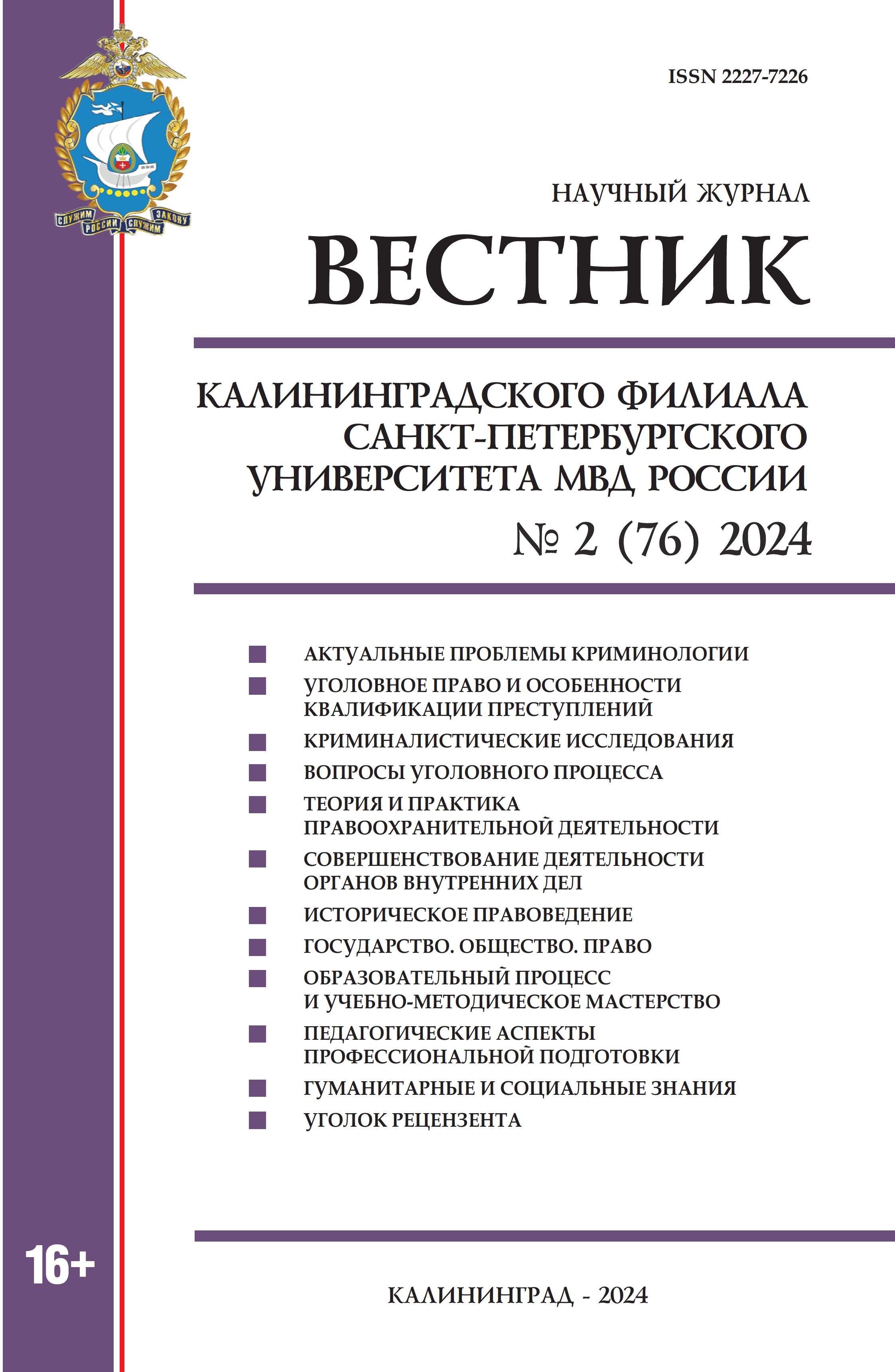from 01.01.2021 until now
Krasnoyarsk, Krasnoyarsk, Russian Federation
UDC 343.7
CSCSTI 10.77
Russian Classification of Professions by Education 40.00.00
Russian Library and Bibliographic Classification 67408
Russian Trade and Bibliographic Classification 7581
BISAC LAW LAW
Introduction. The article presents some theoretical and applied aspects of the study of contactless forms of theft committed using electronic means of payment. In the course of the research conducted by the author of the article, a comparative analysis of a number of elements of crimes provided for in paragraph «g» of Part 3 of Art. 158 of the Criminal Code of the Russian Federation and Art. 159.3 of the Criminal Code of the Russian Federation. A distinction has been made between socially dangerous acts, responsibility for the commission of which is enshrined in these criminal law norms. They are differentiated, in particular, by the nature and direction of deception as a method of action that facilitates access to someone else’s property, in one case, and as a method of confiscating someone else’s property, in the second. The author of the article has studied scientific works on the research topic and summarized the judicial practice of applying criminal legislation in the field of protection of property rights. Based on the results of the analysis, the relevance of criminal law protection of property rights from attacks committed using electronic means of payment is substantiated. Methods. The methodological basis of the study included both general scientific (analysis, synthesis, deduction, generalization, classification, comparison) and private scientific methods (formal legal, method of document analysis, comparative legal method). Results. The author summarizes information about cases of reclassification of acts of the type he is considering from fraud to theft. The reasons for retraining are analyzed. Based on the data obtained, the author enters into a scientific discussion about some issues of distinguishing qualified theft from a special type of fraud in cases of crimes committed using electronic means of payment. In conclusion, the article formulates the criteria for delimiting the elements of crimes provided for in paragraph «g» of Part 3 of Art. 158 of the Criminal Code of the Russian Federation and Art. 159.3 of the Criminal Code of the Russian Federation.
Theft from a bank account, fraud, electronic means of payment, property, deception, breach of trust, intent, selfish purpose







